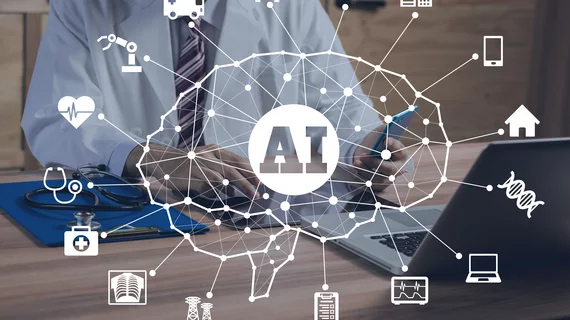New AI model could help brain cancer patients avoid biopsies
Glioma patients typically need a biopsy so physicians can assess their isocitrate dehydrogenase (IDH) mutation status and make a treatment decision. Researchers have developed a new AI algorithm, however, that could make such biopsies unnecessary; the model simply reads a series of MRI scans and makes its assessment.
According to the team’s research, published in Neuro-Oncology, its AI model achieved an accuracy of more than 97%. Could this make pretreatment surgeries for gliomas a thing of the past?
“Knowing a particular mutation status in gliomas is important in determining prognosis and treatment strategies,” co-author Joseph Maldjian, MD, chief of neuroradiology at UT Southwestern Medical Center’s O’Donnell Brain Institute in Dallas, said in a news release. “The ability to determine this status using just conventional imaging and AI is a great leap forward.”
Data from more than 200 brain cancer patients was used to train the deep learning algorithm, which can assess a patient’s IDH mutation status based on “only a single series of MR images.”
“The beauty of this new deep-learning model is its simplicity and high degree of accuracy,” Maldjian said. “We’ve removed additional pre-processing steps and created an ideal scenario for easily transitioning this into clinical care by using images that are routinely acquired.”
Looking ahead, the researchers hope their AI model can help lead to glioma treatments that do not involve a single surgery. For now, the next step involves testing the algorithm on much larger datasets.

